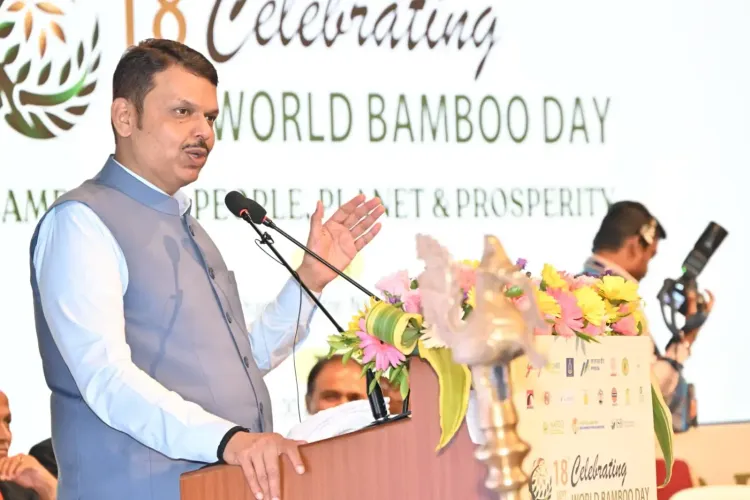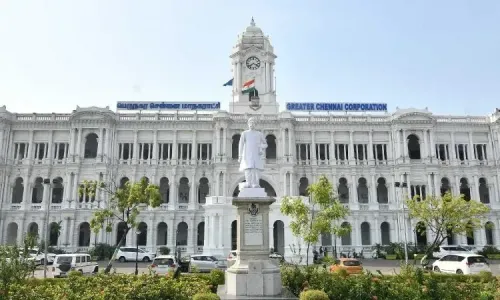Is the Maharashtra government ready to implement a bamboo industry policy?

Synopsis
Key Takeaways
- Maharashtra's bamboo industry policy aims to create a sustainable market.
- Bamboo can mitigate the effects of climate change for farmers.
- The Bamboo Mission will be implemented on a mission basis.
- Farmers will be supported through MahaGenco.
- Integrated ecosystems are essential for bamboo cultivation.
Mumbai, Sep 19 (NationPress) On Thursday, Chief Minister Devendra Fadnavis revealed that the Maharashtra government is set to roll out its bamboo industry policy, with a strong emphasis on establishing a sustainable market aimed at encouraging bamboo farming.
He added that cultivating bamboo can effectively address the challenges posed by climate change in agriculture. This announcement was made during the Bamboo Conference hosted by the Maharashtra Institution for Transformation (MITRA) and Phoenix Foundation in Mumbai.
CM Fadnavis declared that the state will implement the Bamboo Mission in Maharashtra with a mission-oriented approach.
According to him, bamboo presents a crucial opportunity to transform the lives of farmers. This crop can serve as a sustainable solution for farmers grappling with the adverse effects of climate change. He compared bamboo to sugarcane in terms of its potential benefits.
Once established, bamboo requires minimal maintenance. “While crops like cotton and soybean suffer from the impacts of climate change, bamboo can mitigate these effects,” he noted.
The Chief Minister emphasized the importance of fostering an integrated ecosystem to motivate farmers to grow bamboo. Additionally, attention must be given to the demand and supply chain of bamboo.
“Bamboo takes three years to yield, which is quite lengthy, so researchers should pursue varieties that produce in two years. Planting Napier grass alongside bamboo could be beneficial,” he stated.
He also announced that bamboo products will be incorporated into the state’s procurement policy to stimulate bamboo production.
“We will focus on bamboo cultivation in districts with energy projects. A significant campaign for bamboo farming on government fallow lands is planned. Furthermore, we aim to plant 5,000 trees in Gadchiroli to support the local ecosystem,” the Chief Minister elaborated.
Farmers will receive encouragement to cultivate bamboo via the state-run power generation company MahaGenco, similar to the MNREGA model, and a comprehensive plan will be developed for this initiative.
“The state government will also set the market and pricing for bamboo. A policy will be crafted through the Energy Department to provide a market for bamboo products,” he concluded.








